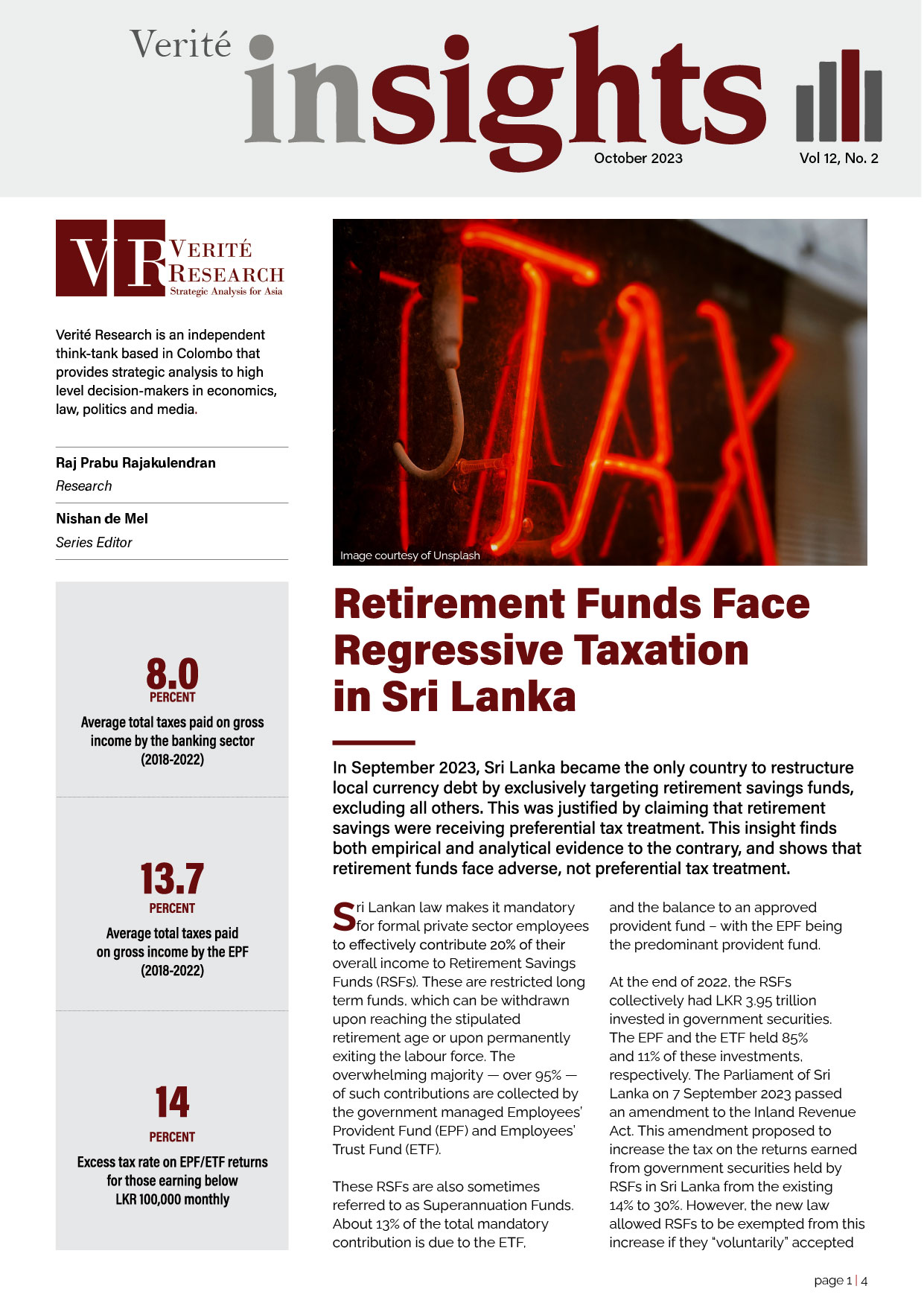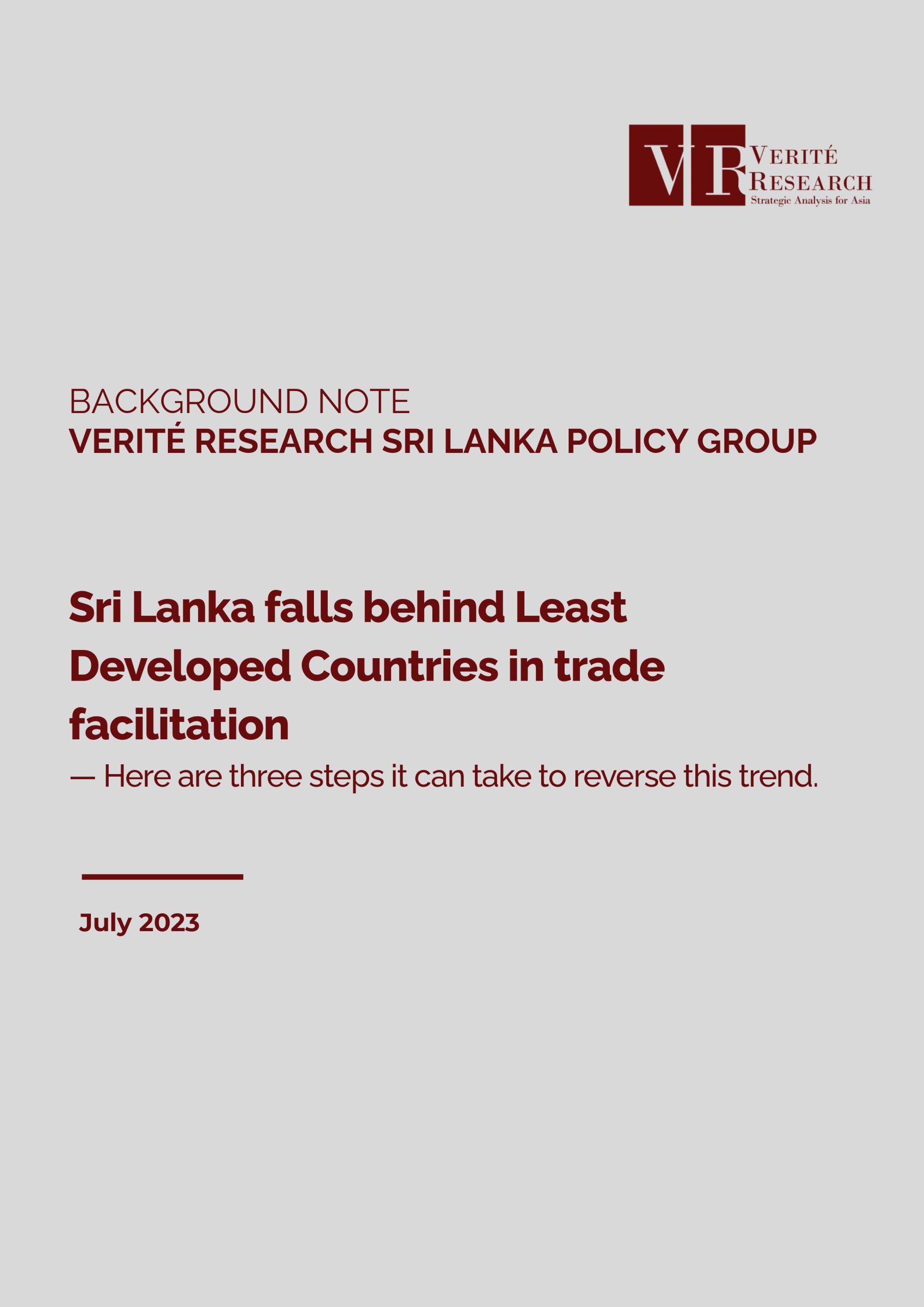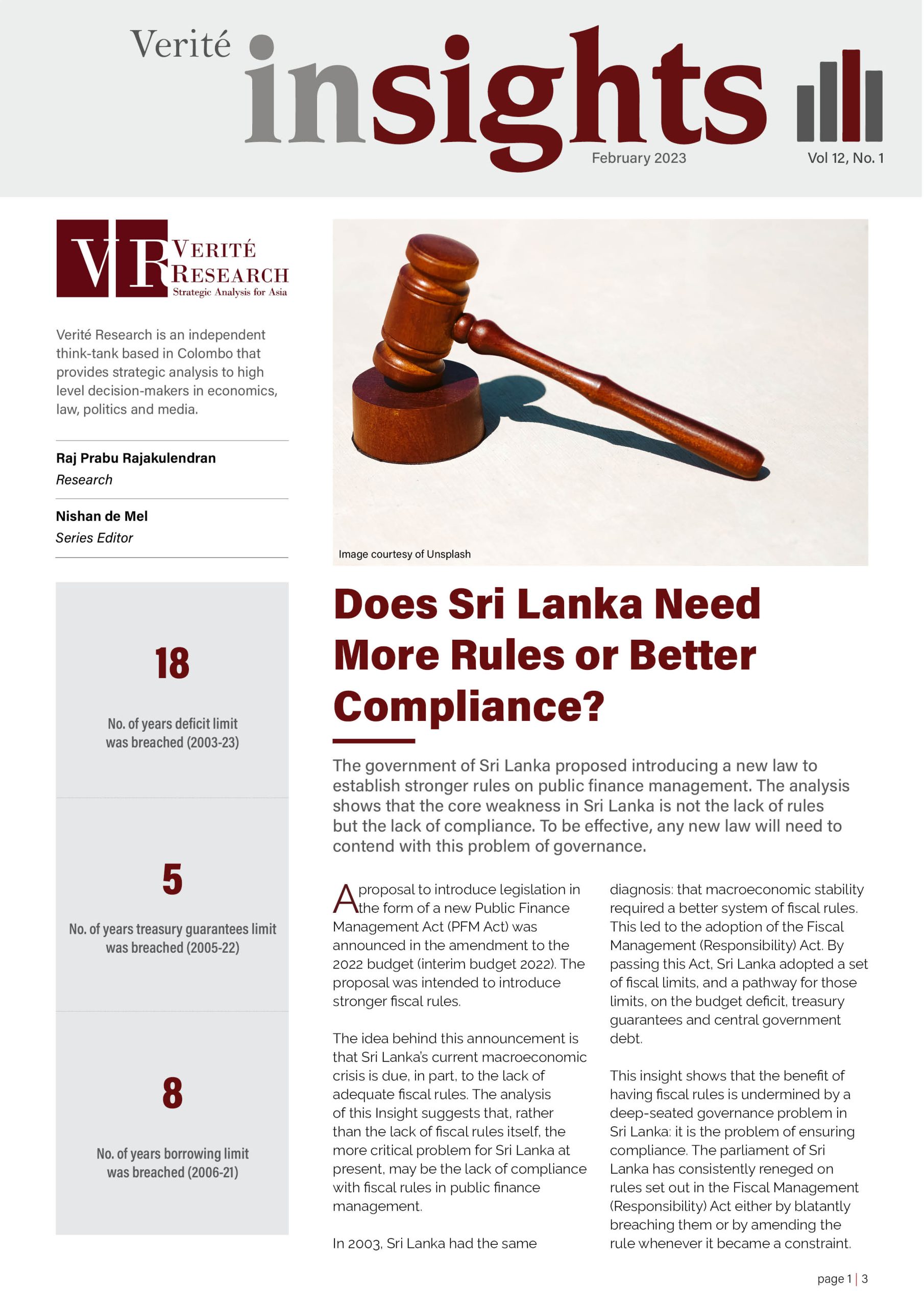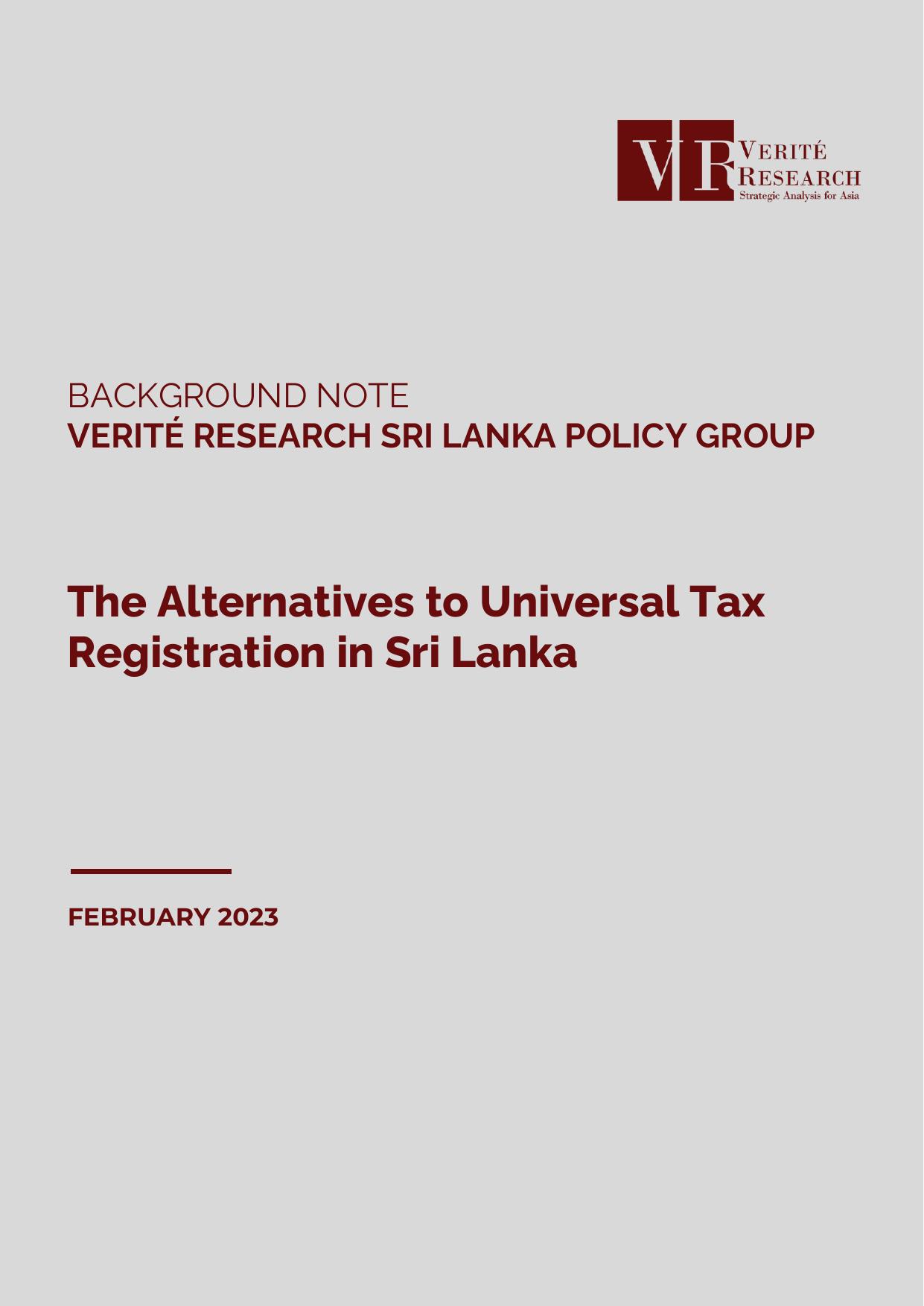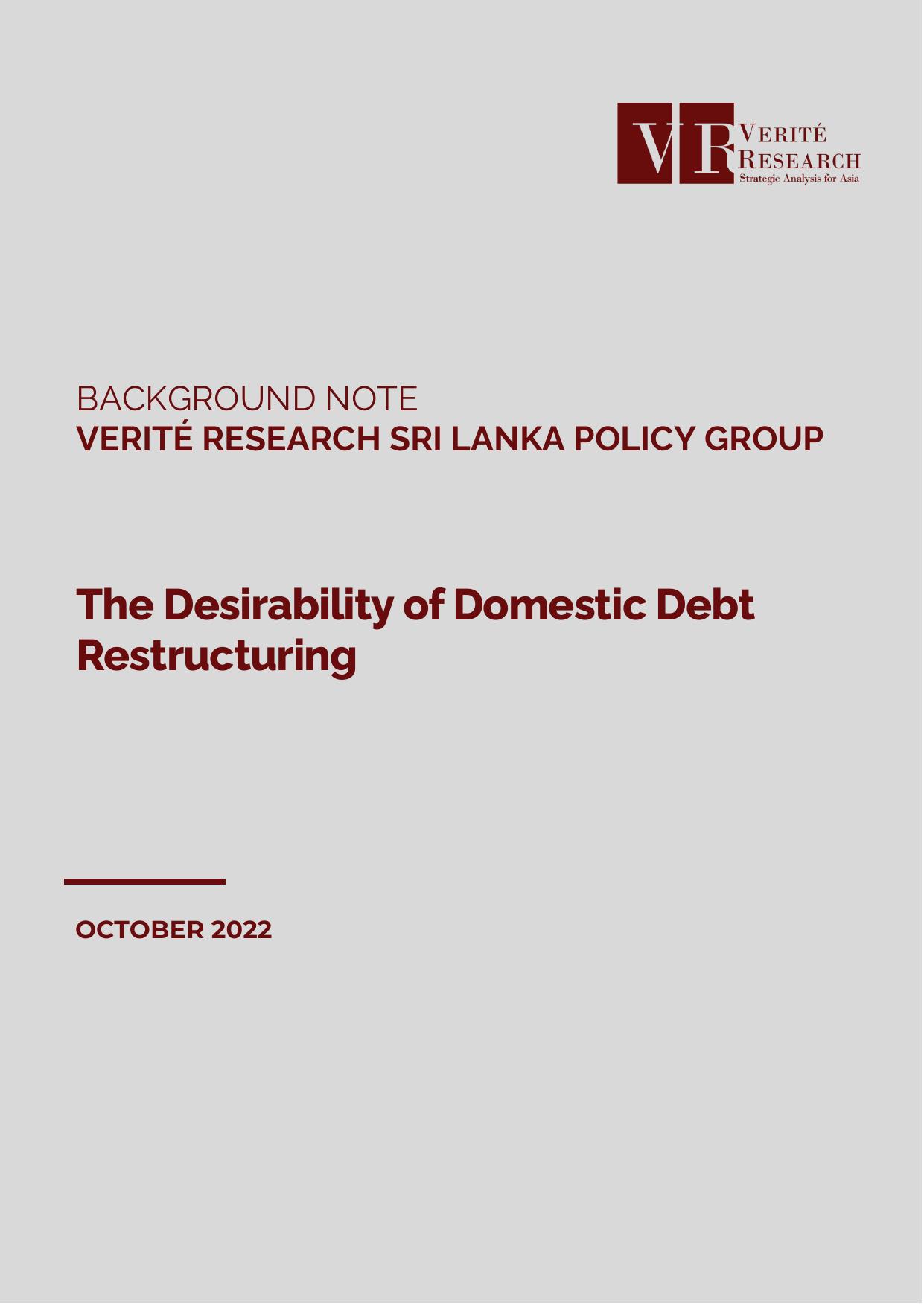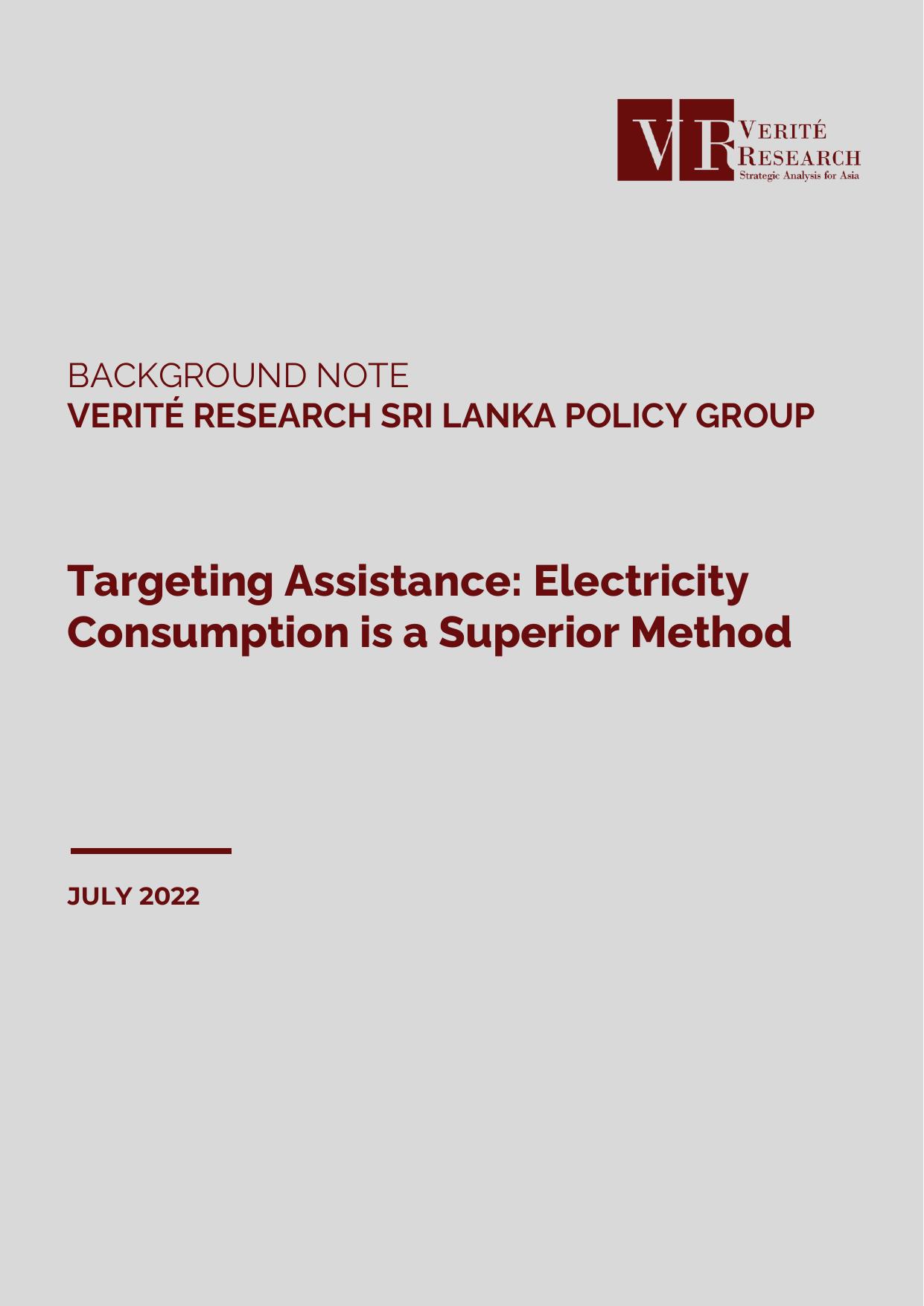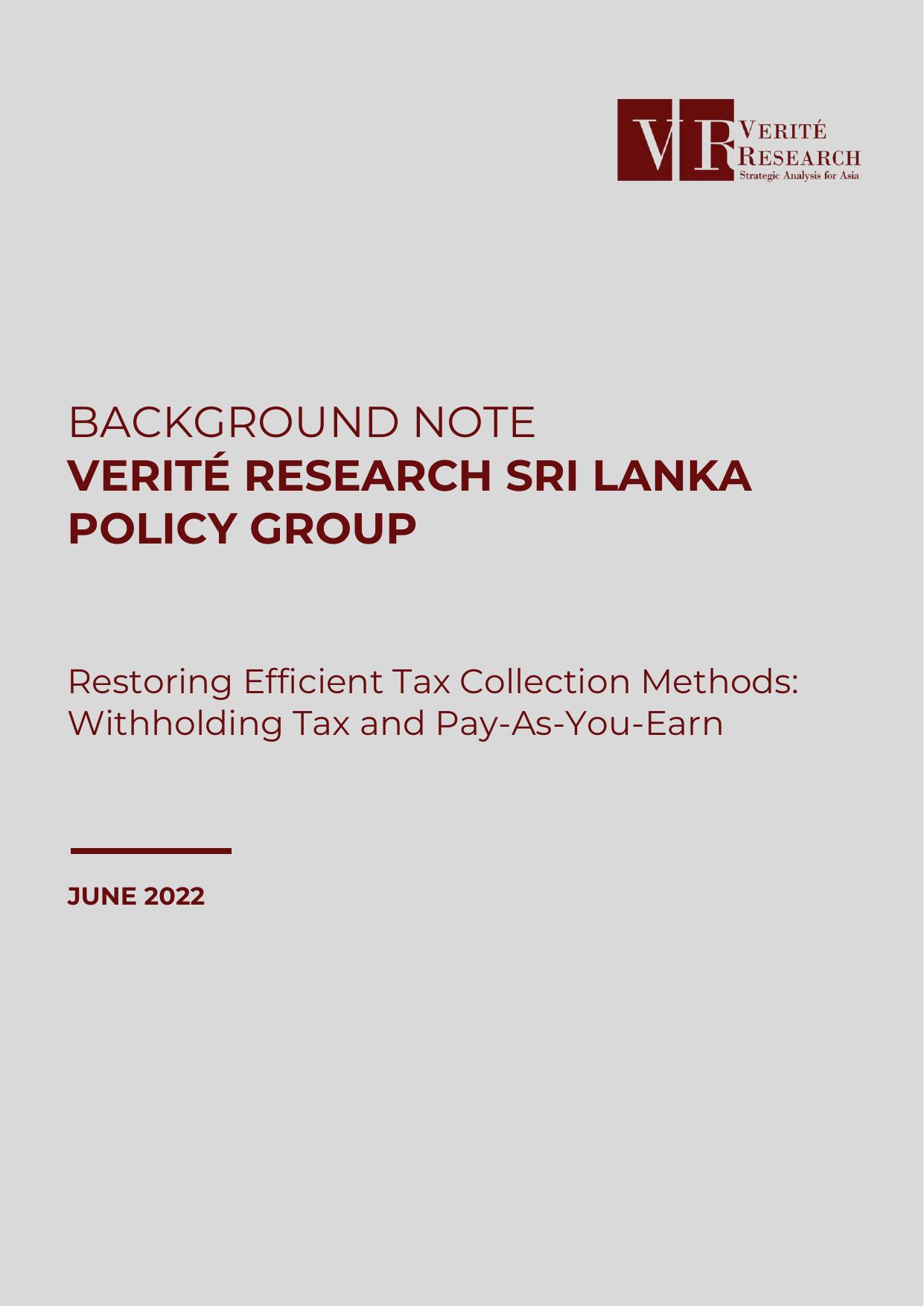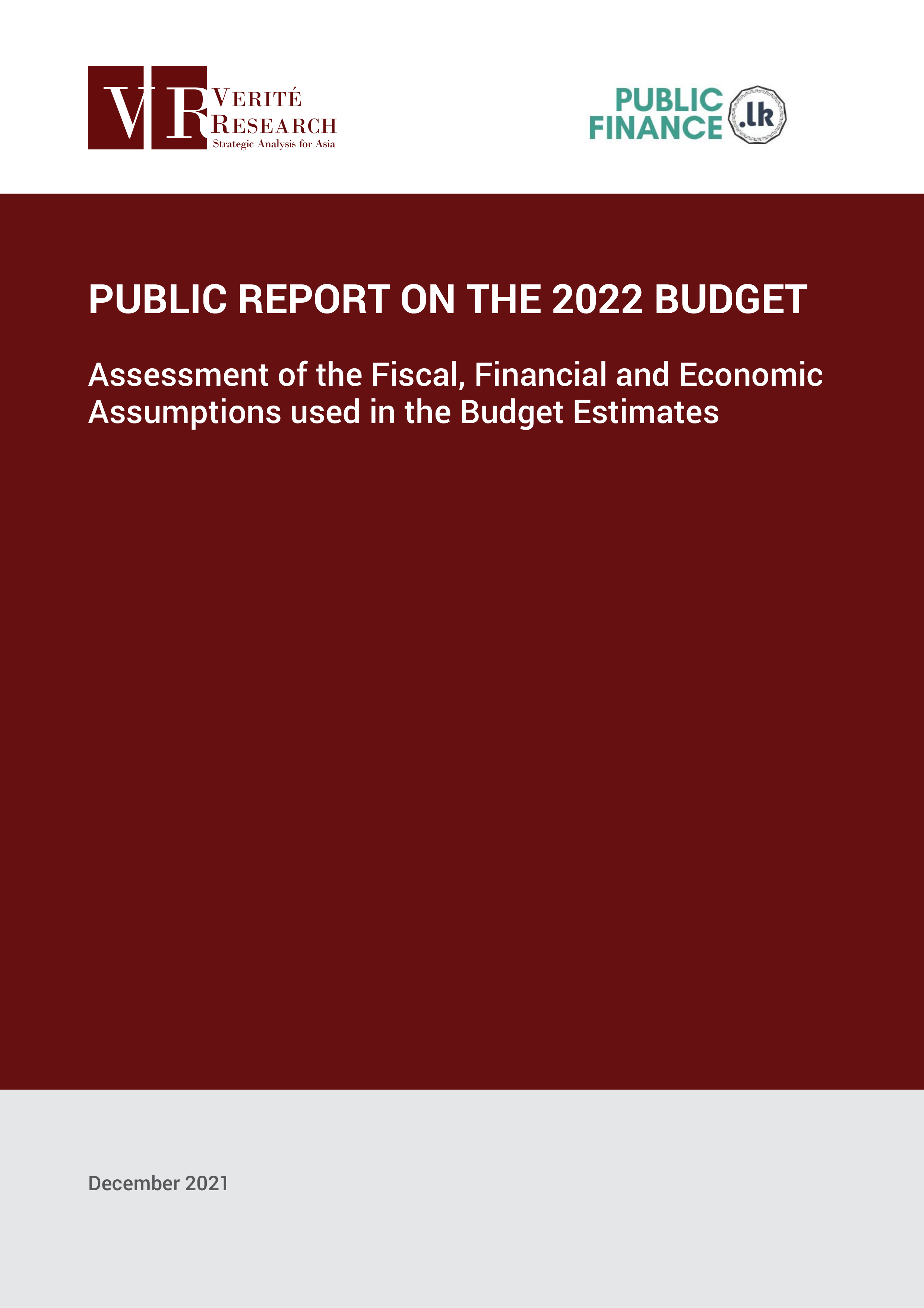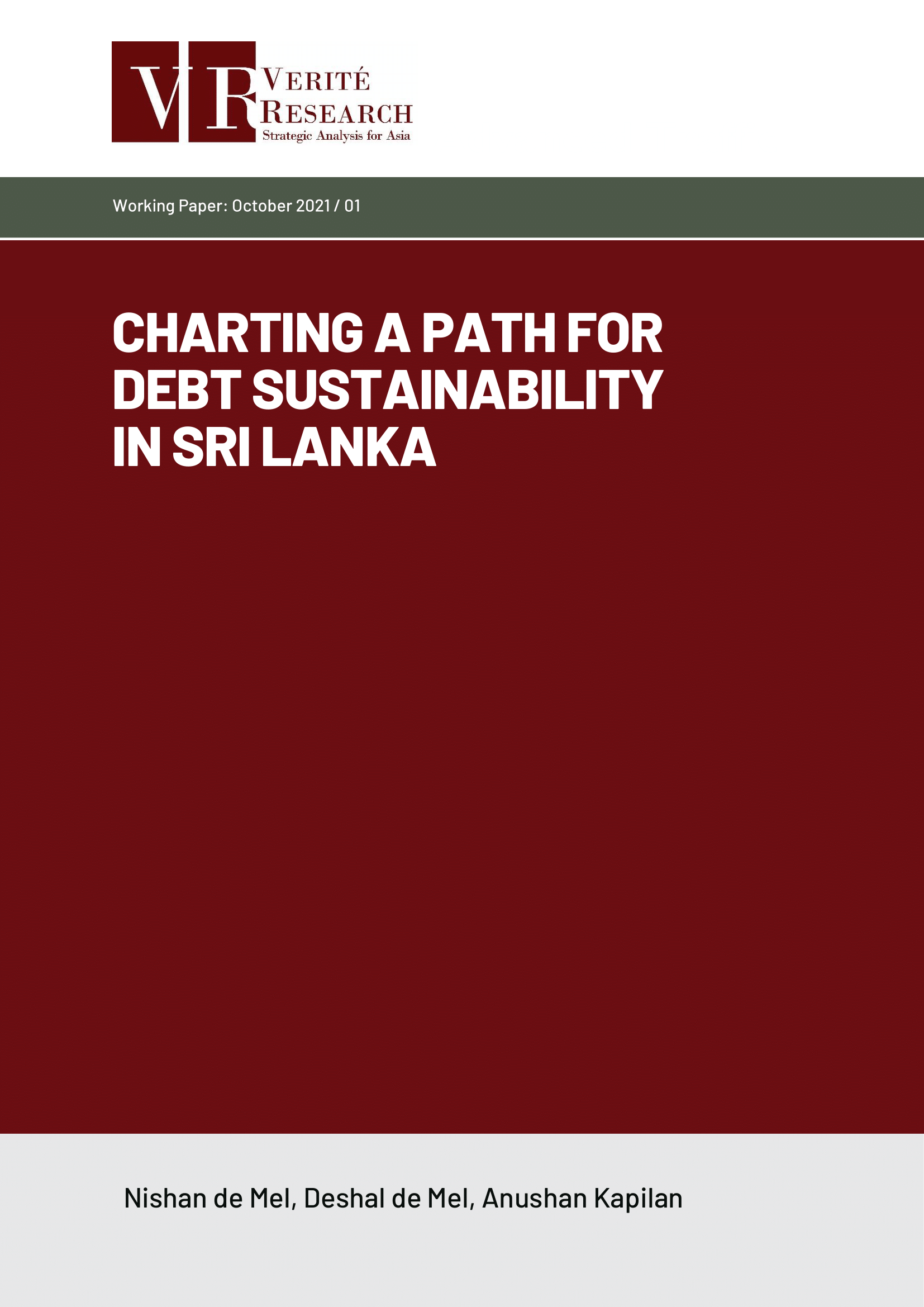In September 2023, Sri Lanka became the only country to restructure local currency debt by exclusively targeting retirement savings funds, excluding all others. This was justified by claiming that retirement savings were receiving preferential tax treatment. This insight finds both empirical and analytical evidence to the contrary, and shows that retirement funds face adverse, not preferential tax treatment.
While there may be numerous factors contributing to Sri Lanka’s sluggish export performance, this background note highlights an important one that puts Sri Lankan exporters at a disadvantage: the failure of the government to facilitate trade by making import and export procedures efficient, less costly, more predictable, and transparent. The comparison is done by using the notifications on progress made by countries under the World Trade Organisation’s Trade Facilitation Agreement (TFA) as a yardstick. The analysis finds that Sri Lanka’s progress falls below not only its competitors and peers but also the least developed countries. Out of the 125 developing and least developed countries, Sri Lanka (ranked 104th) is among the countries that have made the least progress in implementing measures to facilitate trade. Based on the findings, this note provides three lessons Sri Lanka can learn from the experience of others and provides an indicative list of ten measures Sri Lanka can prioritise to implement.
The government of Sri Lanka proposed introducing a new law to establish stronger rules on public finance management. The analysis shows that the core weakness in Sri Lanka is not the lack of rules but the lack of compliance. To be effective, any new law will need to contend with this problem of governance
This note argues that the Sri Lankan government’s recent proposal to implement universal tax registration is neither a viable nor effective strategy to increase the country’s tax revenue. Instead, the note proposes four alternative measures that are more feasible, while still serving the same purpose of expanding the tax base and generating more revenue.
Sri Lanka faces a challenge to emerge from the continuing crisis. This background note argues that domestic debt restructuring (DDR) provides four benefits critical for the economy and country to emerge from the present crisis stronger and more resilient than before. First, DDR provides a pathway toward solvency for the Government of Sri Lanka. Second, it provides the foundations for the stability of the economy (macro stability). Third, it reduces the likelihood of needing subsequent sovereign debt restructuring, and fourth, it facilitates the equitable sharing of the burden of the costs of the crisis.
As Sri Lanka’s crisis continues, up to 50% or more of the population is likely to need state support, however current targeting through Samurdhi reaches just about a quarter of all households and only 40% of the poorest individuals. As such, this background note by the Verité Research Sri Lanka Economic Policy Group recommends household electricity use as a determinant of eligibility for welfare benefits.
This note by the Verité Research Sri Lanka Economic Policy Group estimates the additional revenue that can be collected from reinstating in Sri Lanka two methods of efficient tax collection that were discontinued in 2020. That is: the withholding tax (WHT) and the pay-as-you-earn (PAYE) methods of tax collection. Without any change in the current, reduced, tax rates, and a WHT of 10% the additional revenue that can be collected is estimated to be 0.70% of GDP (which is LKR 184.2 billion in 2023).
This report provides an assessment and analysis of the fiscal, financial and economic assumptions and estimates applied in the formulation of the 2022 Budget.
Since December 2018 Sri Lanka has been subject to three notches down in rating by S&P, Moody’s and Fitch Ratings. This situation is a historical first for Sri Lanka. While many of Sri Lanka’s key macroeconomic indicators have, in the past recorded more negative levels, Sri Lanka has never in the past, been evaluated as being at such a serious level of risk, in terms of defaulting on its debt.
ශ්රී ලංකාව 2021 අප්රේල් මස සිට රසායනික පොහොර ආනයනය තහනම් කරමින්, කාබනික පොහොර වෙත මාරු වීමට පියවර ගන්නා ලදී. පවතින රසායනික පොහොර තොග අඩු වෙමින් පවතින වාතාවරණයක් තුල පොහොර ප්රතිපත්තිය පිළිබඳව ගොවීන්ගේ අදහස් සහ එහි බලපෑම අවබෝධකර ගැනීම සඳහා වෙරිටේ පර්යේෂණ ආයතනය ජූලි මාසයේදී සමීක්ෂණයක් පවත්වන ලදී. ගොවීන් මෙම ප්රතිපත්තියට පුළුල් ලෙස සහයෝගය දැක්වූ නමුත් ගොවීන්ගේ අදහස වුයේ මෙම පරිවර්තනය සාර්ථකව කිරීමට අවශ්ය දැනුම හා කාලය නොමැතිකම නිසා බොහෝ අඩු අස්වැන්නක් ලැබෙනු ඇති බවයි.
